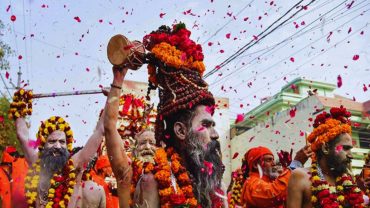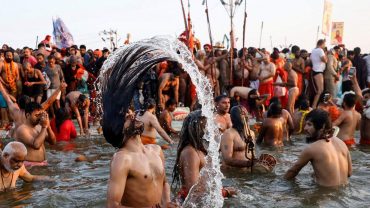Maha Shivaratri, also called the Great Night of Lord Shiva, is a significant Hindu event celebrated with fantastic interest and devotion. It holds immense religious and spiritual importance in the Hindu calendar and is observed by numerous enthusiasts worldwide. This short article delves into the different aspects of Maha Shivaratri, its rituals, meaning, social significance, and the reasons behind its extensive observation.
The Relevance of Maha Shivaratri
Maha Shivaratri, which equates to “the terrific night of Shiva,” is a time when supporters honor and worship Lord Shiva, among the major divine beings in Hinduism. It is thought that on this advantageous evening, Lord Shiva executed the beautiful dance of production, conservation, and destruction. Followers take part in fasting, prayer, reflection, and other routines to look for true blessings and spiritual growth.
Mythical Origins
According to Hindu mythology, Maha Shivaratri holds numerous mythological origins. One prominent tale is that during the churning of the planetary sea, a pot of toxin arose, jeopardizing all development. To shield the world, Lord Shiva consumed the poisonous substance. However, his spouse, Siren Parvati, held his throat, stopping the poison from spreading throughout his body. Therefore, his throat transformed blue, giving him the name “Neelkantha” (the one with a blue throat).
Routines and Customs
Maha Shivaratri is marked by various routines and traditions throughout regions and communities. Right here are some common techniques observed during this auspicious celebration:
Fasting and Meditation: Followers observe rigorous fasting throughout the night and day. They abstain from food and take part in reflection, focusing their minds on Lord Shiva as well as looking for spiritual enlightenment.
Seeing Shiva Holy Places: People go to Shiva temples, especially old and prominent ones, to supply prayers and seek true blessings. The atmosphere is loaded with commitment as followers shout sacred mantras and sing hymns in appreciation of Lord Shiva.
Providing Bel Leaves: Enthusiasts offer bel leaves, which hold enormous relevance in Shiva prayer, to Lord Shiva’s idols or lingams. These fallen leaves symbolize filtration, dedication, and the offering of one’s vanity to the divine.
Executing Rudra Abhishek: A routine referred to as Rudra Abhishek includes putting water, milk, honey, as well as other sacred compounds over the Shiva lingam while shouting petitions and mantras. This act symbolizes the filtration of the self and looking for true blessings from Lord Shiva.
Importance and Ideology
Maha Shivaratri lugs extensive meaning and thoughtful training connected with Lord Shiva. Comprehending these principles aids supporters in connecting with the deeper meaning behind the festival:
Lord Shiva’s Qualities: Lord Shiva symbolizes different high qualities such as devastation of ignorance, empathy, austerity, and also supreme awareness. His cosmic dancing stands for the eternal rhythm of life and the cycles of production and destruction.
Understanding the Lingam: The Shiva lingam, a symbolic representation of Lord Shiva, indicates the unmanifest and formless facet of the divine. It stands for the union of the man and female energies and also as a reminder of the interconnectedness of all presence.
Maha Shivaratri Celebrations Worldwide
Maha Shivaratri is celebrated not only in India but also by Hindus worldwide. From Nepal to Malaysia, from the United States to Mauritius, devotees collaborated to pray to Lord Shiva and participated in the festivities. The celebrations include intricate temple decorations, social efficiencies, religious songs, and spiritual discourses.
Festivities as well as Cultural Relevance
Aside from its spiritual and also spiritual aspects, Maha Shivaratri also holds enormous social value. It brings areas with each other, reinforces domestic bonds, and advertises unity and consistency. People dress in conventional outfits, take part in cultural events, and share happiness and love with others, highlighting the festival’s social relevance.
Scientific and Spiritual Advantages
The awareness of Maha Shivaratri uses clinical and spiritual advantages for individuals. Some of these consist of the following:
Purification of Mind and Body: Fasting and engaging in spiritual techniques throughout Maha Shivaratri aid in detoxing the body and soothing the mind. It provides a chance for self-control and self-contemplation, leading to physical and psychological renewal.
Stirring Up Spiritual Awareness: The focused prayers and reflection throughout Maha Shivaratri allow fans to dive much deeper into their spiritual journey. It permits them to get in touch with their psyche, awakening spiritual consciousness and cultivating personal growth.
Popular Shiva Mantras, as well as Chants
Fans typically recite sacred concepts and chants committed to Lord Shiva throughout Maha Shivaratri. Some well-known concepts include the “Om Namah Shivaya” and the “Mahamrityunjaya Rule.” These powerful resonances are believed to conjure up a magnificent presence, cleanse the environment, and raise spiritual power.
Maha Shivaratri: A Time for Inner Improvement
Beyond the exterior rituals and events, Maha Shivaratri represents a time for inner transformation and spiritual evolution. It motivates individuals to introspect, release negative traits, cultivate virtues, and grow their connection with the divine. It acts as a tip to welcome adjustment, embrace brevity, and strive for inner growth and awareness.
Final thought
Maha Shivaratri, the auspicious evening of Lord Shiva, brings devotees closer to the divine and provides a chance for spiritual growth and self-discovery. Via fasting, meditation, routines, and an understanding of its importance, people can experience the profound mentors and blessings of Lord Shiva. The party of Maha Shivaratri transcends borders, uniting Hindus worldwide in commitment and reverence for the mighty Lord Shiva.
Frequently asked questions
Q: Can anyone observe Maha Shivaratri, or is it limited to Hindus just?
A: Maha Shivaratri is mostly observed by Hindus. However, anyone with a real reverence for Lord Shiva can get involved and look for blessings.
Q: Are there any specific rules for fasting during Maha Shivaratri?
A: While fasting practices may differ, devotees usually avoid food and also eat just fruits, milk, and also water during the fasting duration.
Q: Is Maha Shivaratri only celebrated during the night?
A: Although the major festivities occur during the night, followers engage in different rituals and prayers throughout the day.
Q: Exist any type of regional variants exists in Maha Shivaratri celebrations?
A: Yes, various regions have unique customs and methods connected with Maha Shivaratri, including multiculturalism in the celebrations.
Q: Besides Lord Shiva, are various other deities venerated throughout Maha Shivaratri?
A: While Lord Shiva is the primary emphasis, Siren Parvati, Lord Ganesha, as well as various other associated divine beings are likewise revered throughout Maha Shivaratri.



Comment (0)